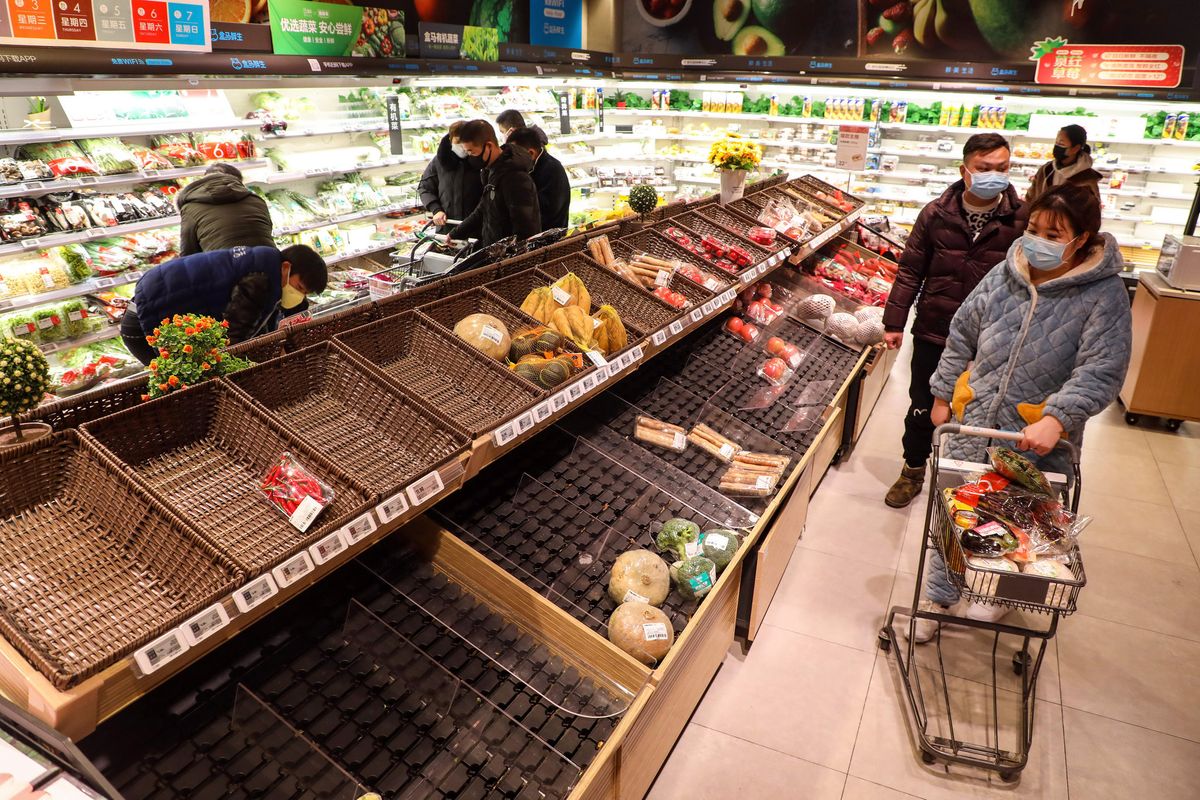Unexpected consequences: the side effects of the coronavirus quarantine

A few minutes every morning is all you need.
Stay up to date on the world's Headlines and Human Stories. It's fun, it's factual, it's fluff-free.
As countries scramble to address the spread of COVID-19, regular citizens are changing how they live their lives.
In China, where the virus originated, mass quarantines have also led to unexpected trends in two very different areas: mobile gaming and home cooking.
Meanwhile, the growing epidemic has had major consequences globally on tourism, national economies and even prison sentences.
Mobile game downloads boom
On March 3, a report in Reuters found that global downloads of games for mobile phones had skyrocketed 39% in February. In China alone, there was an increase of 62% on downloads in Apple’s App Store. For February, that equated to 4 billion downloads around the world, with 1.6 billion downloaded in Asia alone.
In China, the most downloaded games included “Brain Out,” a game of riddles and brain teasers, and “Honor of Kings” (known as “Wangzhe Rongyao” in China), a multiplayer online battle arena (MOBA) game.

In 2018, “Honor of Kings” was the highest-grossing game around the world, bringing in nearly US$2 billion.
This rise in downloads has been attributed to coronavirus-related quarantines that are keeping people stuck in their homes. In mid-February, more than 780 million people in China had been living under some sort of quarantine or travel restriction.
Last month, Chinese officials were recorded breaking tables in public areas to discourage people from gathering after it was determined human-to-human transmission of the virus was possible.
A culinary adventure
Quarantines have also resulted in a loss of business for restaurants and grocery stores in China as people have been unable to leave their homes. As a result, NPR reports that many home-bound chefs and food bloggers have been forced to get creative.
Unable to go to the store to buy their desired ingredients, these cooks have decided to create new recipes based on ingredients they had at hand.
Christopher Thomas and Stephanie Li, the creators of a YouTube cooking channel called “Chinese Cooking Demystified,” have found new ways of combining seemingly incongruous ingredients, such as mixing traditional stir-fry with flour tortillas for cross-cultural fajitas.
On February 27, the New Yorker ran a comic written and illustrated by the Beijing-based artist Krish Raghav entitled “Quarantine Cooking: Finding Relief from Coronavirus Anxiety in the Kitchen.”
The comic discusses how Xiachufang, a popular Chinese recipe website, now features “thousands of simple stir-fries, experiments in baking, and survival food.” Rather than including just recipes, these dishes often involve “musings on life under the COVID-19 lockdown.”
The comic describes this “quarantine cooking” as “trial-by-error cooking, but also trial by playfulness.” These “transmissions sent from isolation” are a way of staying connected to others in the midst of loneliness and uncertainty.
The global effects of COVID-19
The coronavirus has had major effects on business sectors all over the world, resulting in major events or social activities being shut down.
Stock markets around the globe have also suffered. In the week ending February 28, the US stock market experienced the largest weekly drop since the 2008 Great Recession. Many of those losses have now been made up, but markets still appear fragile.
In Spain, the Mobile World Congress, the world’s largest mobile tech conference, was canceled last month in response to the spreading epidemic.
In February, the city of Macau, the biggest center for casino gambling in the world, was forced to shut down its casinos. They reopened later that month after having been closed for an unprecedented 15 days. “[Macau] is like a ghost town," a local Macanese resident told The Millennial Source.

The continued spread of COVID-19
As people adapt to life under quarantine, the spread of COVID-19 grows more and more into a global concern. March began with the announcement that the death total for the virus had surpassed 3,000. Most of those deaths occurred in China.
However, as the spread in China has started to temper, other countries are facing a rise in their infection rates.
As of last week, the infection rate in China has now fallen below that of the rate outside the country.
As of March 2, there were six reported deaths in the United States, all in the state of Washington, but cases had also been found in New York and California, raising the confirmed number of cases in the US to 125 as of March 4.On Tuesday, March 3, the World Health Organization (WHO) updated the death rate for COVID-19 from 2% to 3.4%. That rate varies from country to country, based on the level of healthcare and the response to the outbreak.
[article_ad]
Have a tip or story? Get in touch with our reporters here!




Comments ()